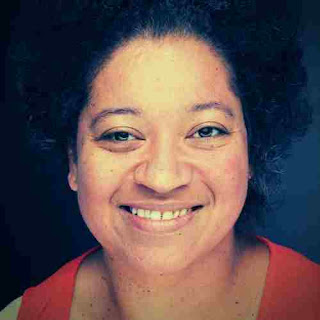Now more than ever before is a great time to utilise the knowledge, skills and expertise of disabled people. To improve not only the lives of disabled people but workplace cultures, and the delivery and development of services and products.
PurpleSpace recently published a report on the effects of lockdown on disabled employees. The organisation surveyed their clients across a diverse range of sectors. They found for many disabled employees working within the organisation surveyed, a number of positive outcomes that resulted from remote and home working. These included:
• (For some) a greater connection between teams
• (For some) it has meant feeling more positive and productive
As a trainer and consultant, my professional life pre-lockdown consisted of sitting for hours each week on trains and public transport heading into London and other major cities to deliver services for my clients. Don’t get me wrong; I do miss the train journey, talking to strangers at 6am. Explaining that no, just because I am a wheelchair user does not mean I’m on a day trip. And even if I was on a day trip, it wouldn’t be starting at 6am. Plugging in my wireless headphones and battling through rush-hour traffic. I would arrive and after finding the venue, deliver a half day/full day of training or consulting before heading back to North Hampshire.
Like many of us, disabled or otherwise, this was the reality. Depending on how far we were travelling each day, we could only make so much difference; talk to so many people; influenced so many strategies; introduce so many new perspectives.
So what? Why is this relevant to co-production?
Although many of us are heading back into the office, many of us are still working from home and/or shielding. Many disabled people have realised that productivity can still take place from the comfort of their own living room and in some cases (as seen above) productivity and inclusivity has increased. The level of participation, engagement, value and sense of self-worth has dramatically been improved. In turn, this improves the innovation, collaboration and co-production of those disabled people.
There is now much more time to have conversations; simply because much of the time that was previously spent on travel can be reassigned. People have a lot more capacity to innovate, share experiences, problem-solve, design and develop because much of our energy is being saved by not having to travel to physical premises and to think about our access requirements once we have arrived.
Whilst digital platforms are not 100% inclusive or accessible for disabled people, they are opening up many more opportunities for people to engage and interact. As well as digital video platforms, there are many ways to digitally interact to gather the ideas of the people that know best. User-led Facebook Groups such as The Bunker have enabled disabled people to share experiences on a peer-to-peer level.
In a time where many of the social and environmental barriers have been demolished, let’s now work together and embrace this time to innovate and design with lived experience experts.
================================================
Esi is a trainer, disability inclusion consultant, podcaster and writer.
Celebrating Disability delivers an end-to-end service for businesses and not-for-profits. Providing training, consulting, auditing and public speaking to support organisations attract, engage and retain disabled people.
Esi hosts the podcast #PartofMe Podcast – a peer interview podcast. Guests share their experiences of how they manage their disability in the workplace. Workplaces are varied; from mediator couches to the tennis court and everything in between. As well as stimulating debate and discussion, the podcast offers advice and tips for managers and disabled people alike.






